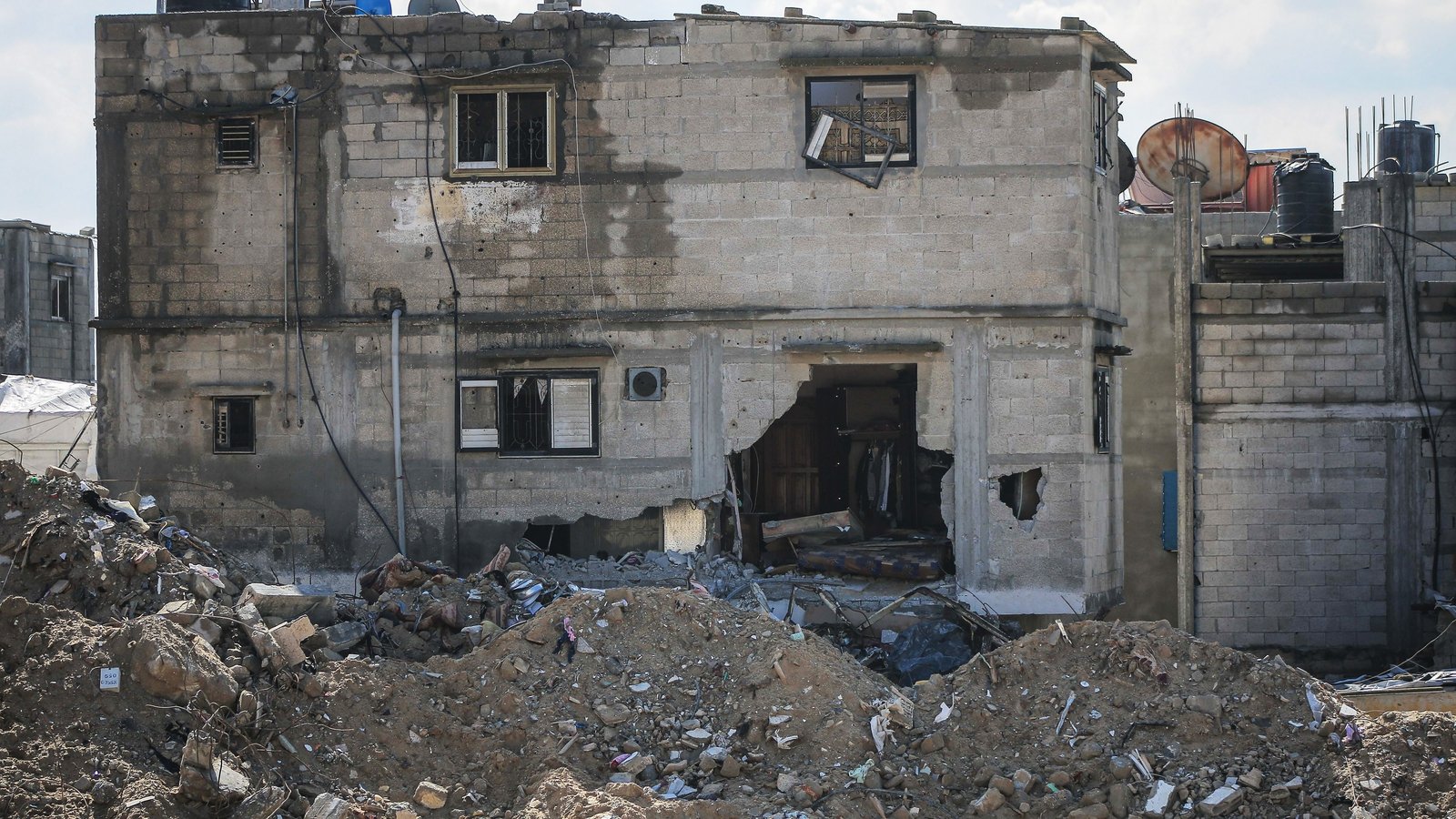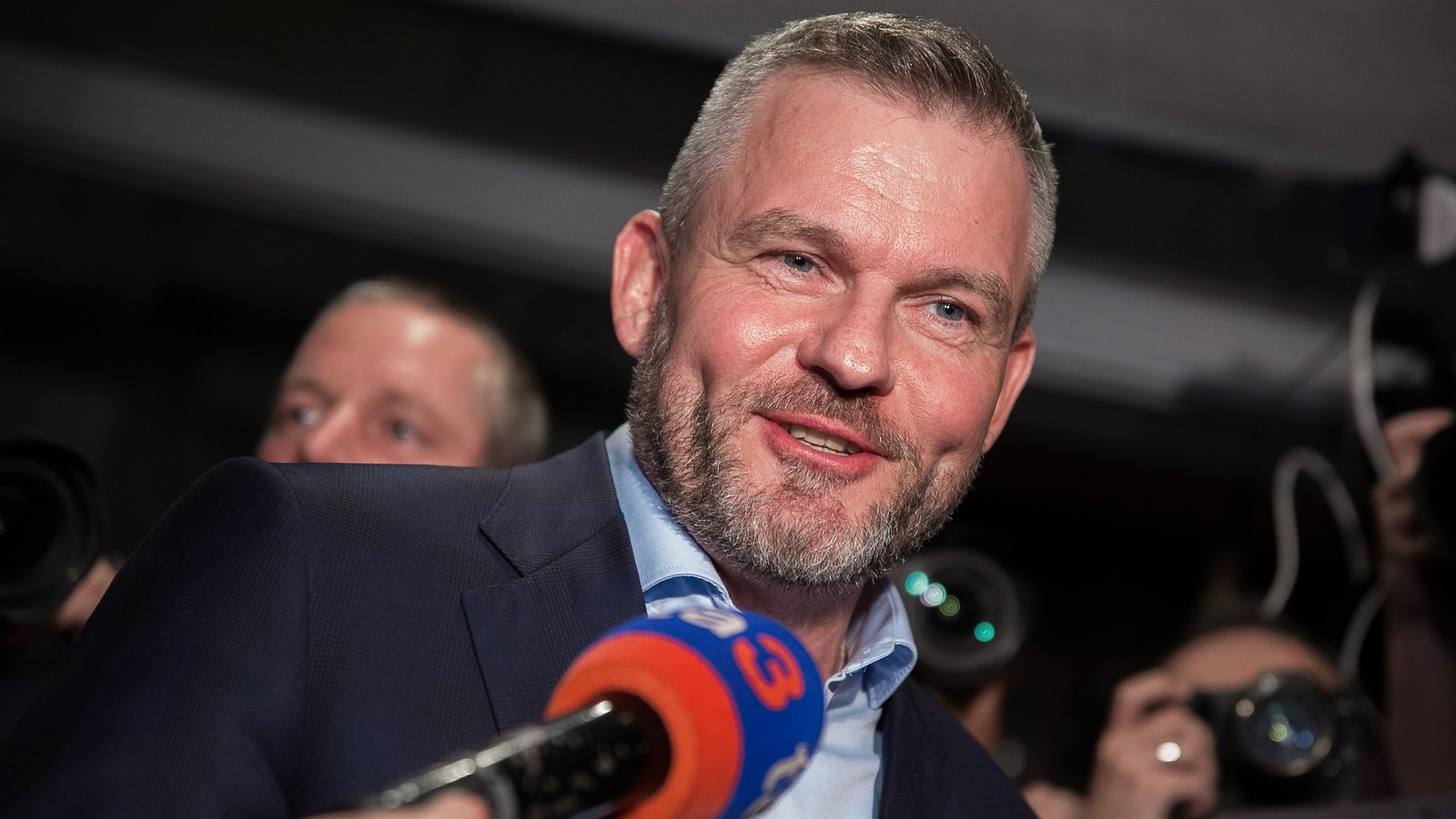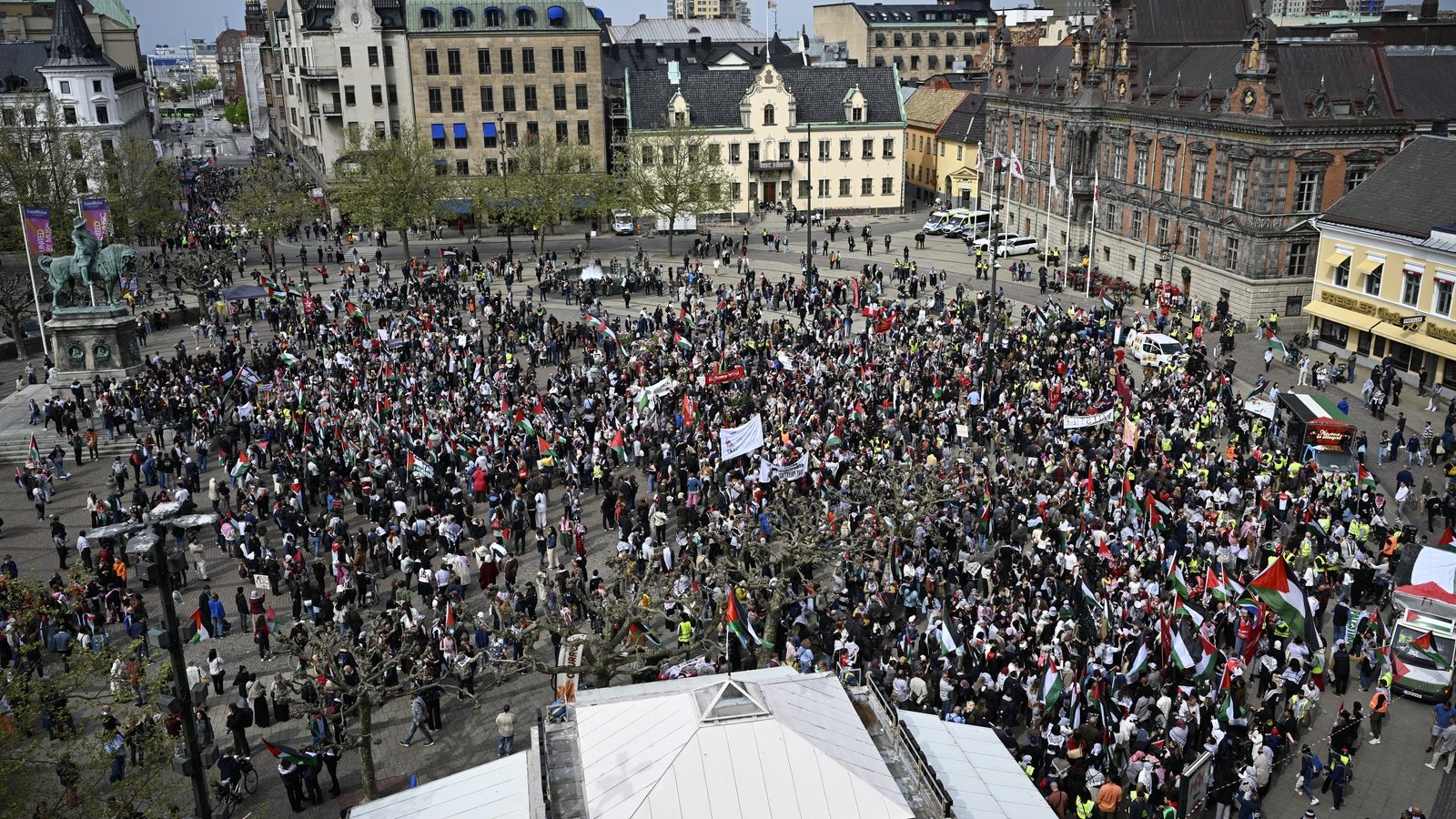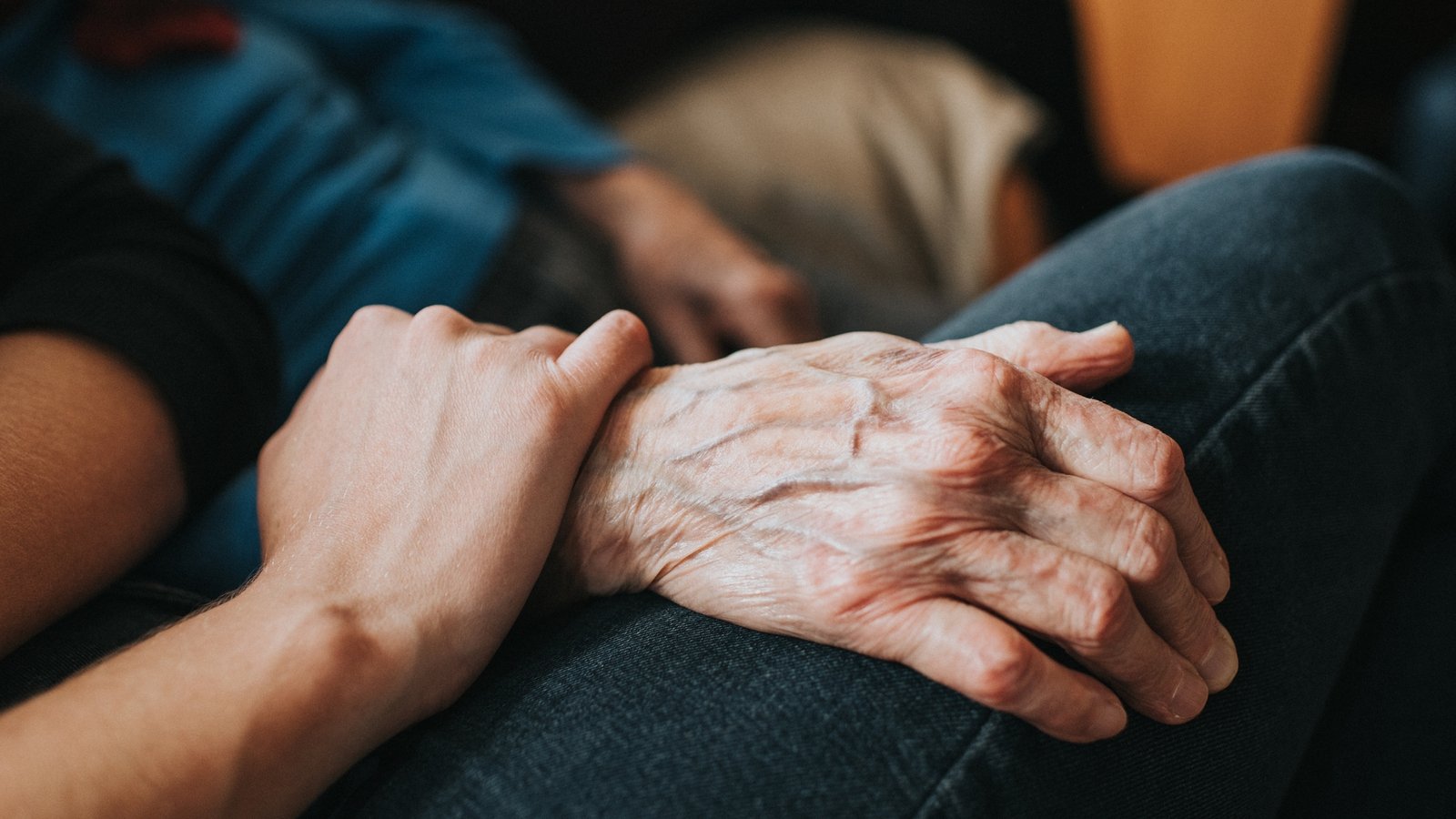Return in sight after long road back
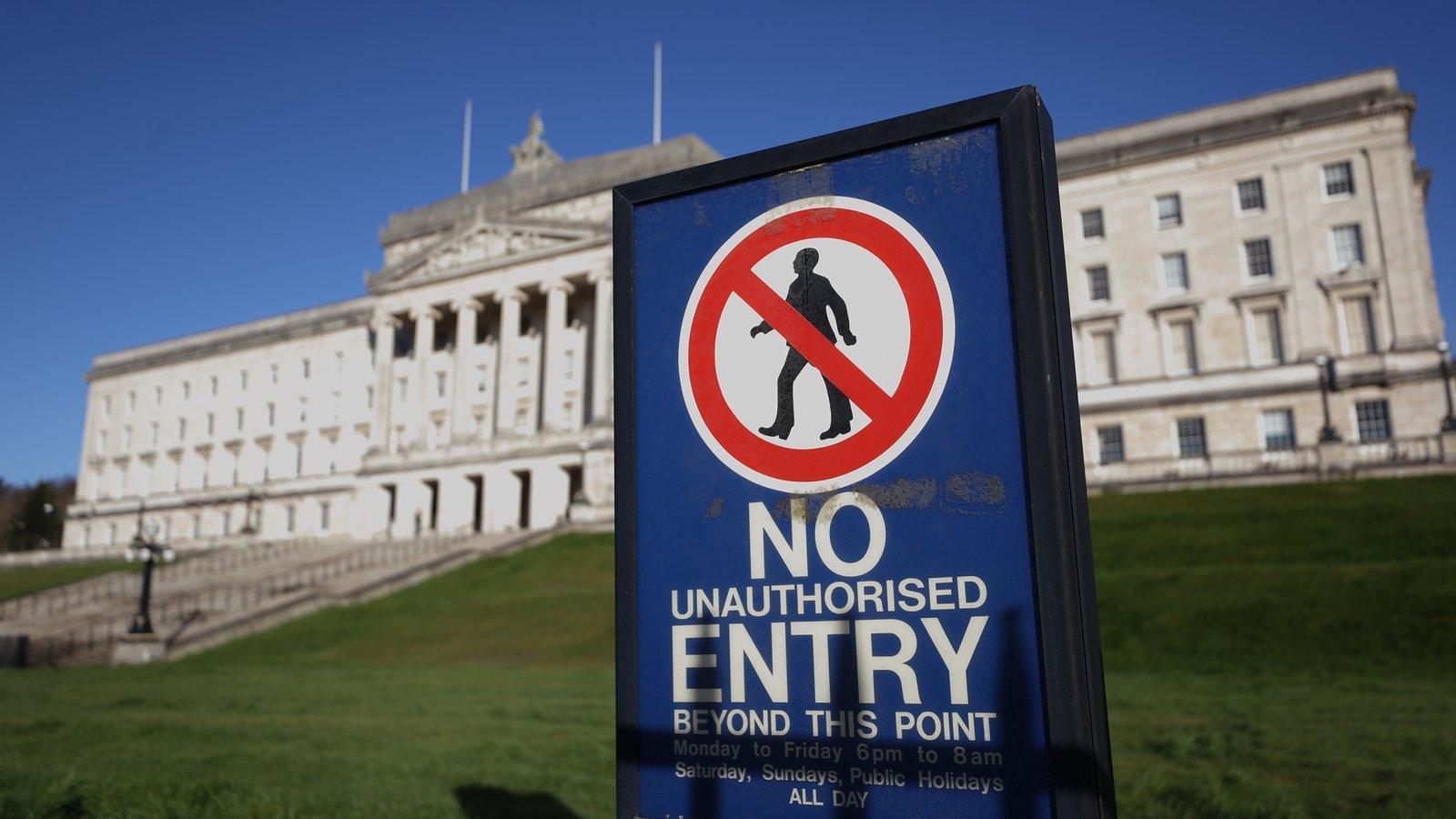
It’s been a long wait, 726 days to be precise.
The arduous journey back to Stormont was one during which all sides experienced their fair share of disappointment, despair and false dawns.
This morning, however, saw the first sure sign that the wait for power-sharing was almost over, as the Democratic Unionist Party announced that it had reached agreement on a deal with the British government over post-Brexit trading arrangements.
Here’s a look back at the long road to the return of Stormont.
February 2022: Power-sharing collapses
On 3 February 2022, Northern Ireland’s First Minister Paul Givan resigned in protest over the Northern Ireland Protocol, the post-Brexit trade deal which keeps Northern Ireland aligned with the EU single market for goods. He had been less than eight months in the job.
The new trading arrangement between Britain and Northern Ireland led DUP members and other unionists to conclude that a border had been created in the Irish Sea, undermining the constitutional integrity of the UK.
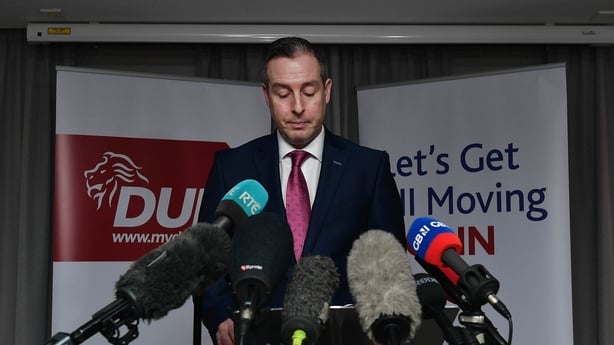
For some time, the DUP leader Jeffrey Donaldson had been threatening to pull the plug on the executive if his party’s concerns were not addressed. However, with an election approaching, scheduled for May of that year, many were wondering if such threats were empty.
Tensions ratcheted up several notches the day before Paul Givan’s resignation when the North’s Agriculture Minister Edwin Poots ordered a cessation of all Brexit checks on agri-food products at Northern Ireland ports.
The next day, after a DUP meeting in a Belfast hotel, Jeffrey Donaldson announced that Paul Givan had tendered his resignation to the speaker of the Northern Ireland Assembly.
His decision to quit forced the collapse of the executive, removing Sinn Féin’s Michelle O’Neill from her role as Deputy First Minister.
May 2022: Assembly Elections
The Northern Ireland Assembly elections in May 2022 saw a historic result, with Sinn Féin’s Michelle O’Neill emerging as First Minister designate.
However, the DUP made clear that it would block the election of a speaker to a new Assembly until its concerns around the Northern Ireland Protocol were addressed.
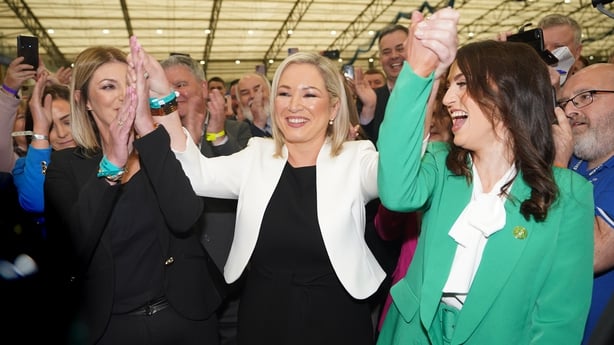
Under the power-sharing system, this meant that the executive could not resume.
Within days of the election result, then Prime Minister Boris Johnson travelled to Northern Ireland, to try to address problems the protocol. It was one of several attempts to quell concerns.
Ultimately, Boris Johnson would fail to get a new agreement over the line.
Windsor Framework
Just over a year since the DUP pulled the plug on the assembly, the new UK Prime Minister Rishi Sunak and European Commission President Ursula Von der Leyen reached agreement on a new framework to improve the operation of the Northern Ireland Protocol.
It was agreed in Windsor, hence the name; The Windsor Framework.
Rishi Sunak said the deal removed any sense of a border in the Irish Sea and ended uncertainty for people in Northern Ireland.
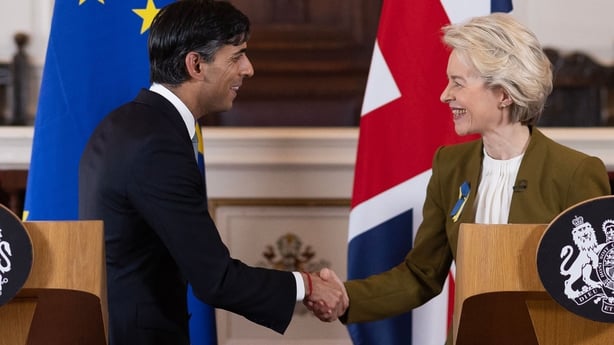
The DUP ultimately did not agree.
A few weeks after the agreement Jeffrey Donaldson announced that the DUP would oppose the Windsor Framework as it didn’t believe it represented the “significant progress” that was required to resume power-sharing.
Christmas Miracle?
After endless talks around the Windsor Framework and a possible return to Stormont, there appeared to be genuine momentum in the run-up to last Christmas.
Party leaders in the North had been meeting at the British Royal Palace of Hillsborough to reach agreement on a resumption of power-sharing, but also to talk money.
Northern Ireland Secretary of State, Chris-Heaton Harris, had put forward a “final” offer of £3.3 billion to entice parties back to the executive.
It appeared as though a breakthrough was imminent. Prime Minister Rishi Sunak was said to have pencilled in a flying visit to Hillsborough to celebrate the achievement.
But alas, no. Festive joy was to be a replaced with a sense of bah humbug. The long journey back to power-sharing would continue into 2024.
New Year, false dawn
The first few weeks of January saw yet another false dawn.
DUP members gathered again to discuss a possible resumption of power-sharing on Friday 19 January.
Leaks that the meeting was scheduled to take place that evening led to mounting speculation that a deal could be imminent. However, it wasn’t to be.
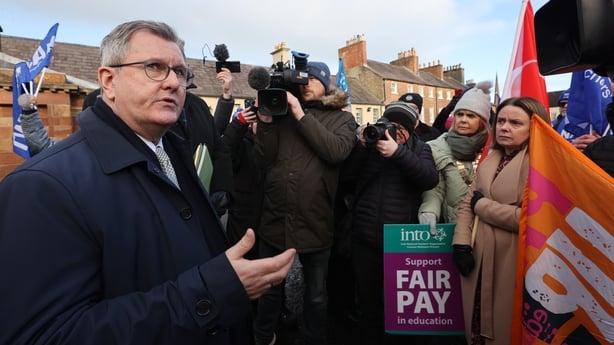
Party leader Jeffrey Donaldson would later tell media afterwards that it was not a “yay or nay” meeting.
He insisted that he was still talking to the British government about the terms of a deal that would be sufficient to persuade the DUP to return to Stormont.
Power-sharing set for a return
During an impassioned speech in the House of Commons, Jeffrey Donaldson told MPs that he had been threatened by loyalist hardliners.
He gave people a sense that Donaldson was preparing to face down his critics, that he was having his own so-called “Trimble moment”.
Less than a week later, breakthrough.
Shortly before 1am this morning Jeffrey Donaldson emerged from a five-hour meeting to tell a waiting media that his party had agreed to return to power-sharing.
Finally, after 726 days, the long road back to Stormont had an end in sight.

